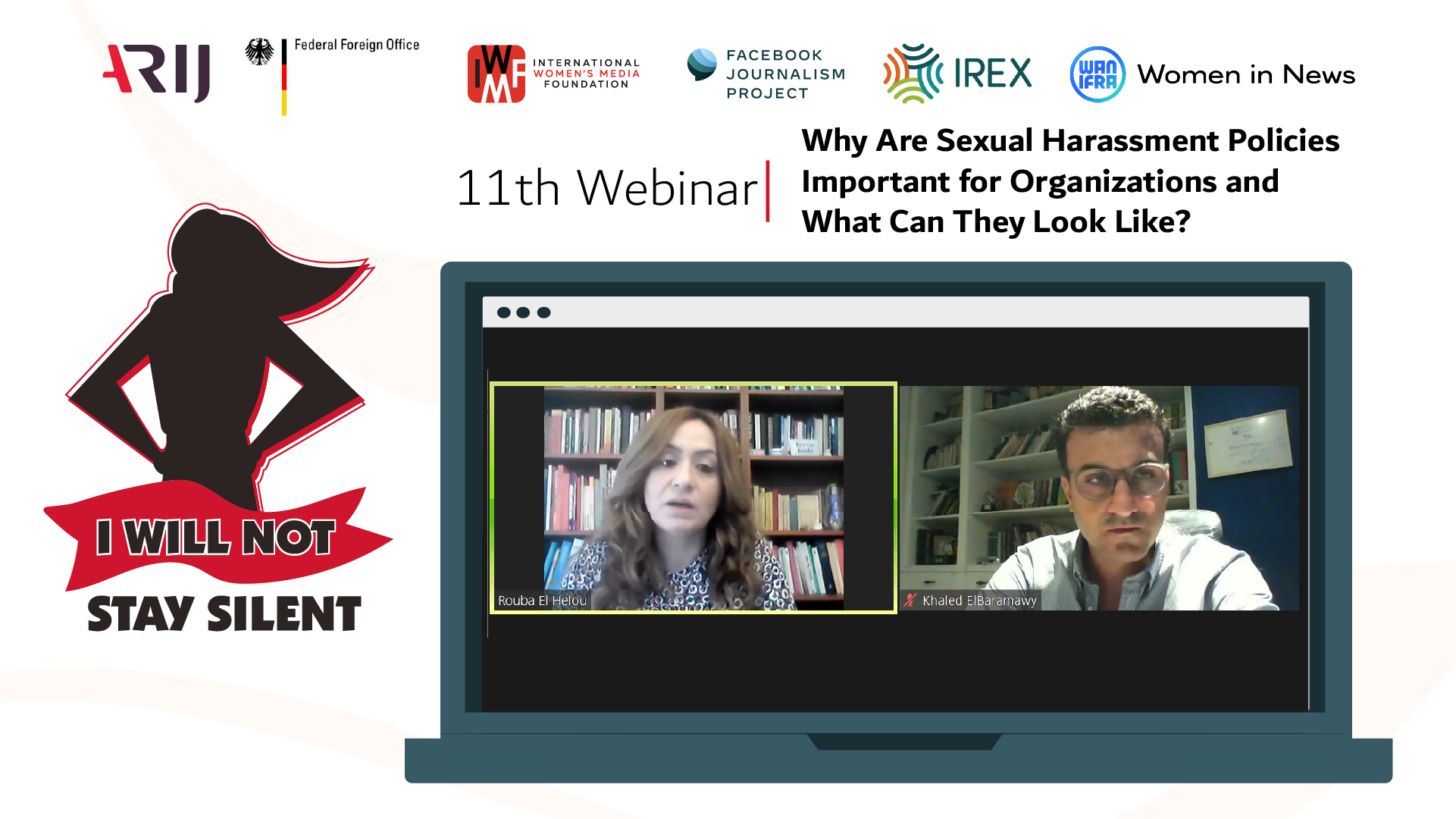Amman- 24 May 2021
The 11th webinar in the “I Will Not Stay Silent” webinar series addressed the challenges of and opportunities for developing policy frameworks within organizations and best practice examples, in line with the project’s aim to create a safe, pluralistic media environment that is free of discrimination based on sex, gender, color, race, religion, and thought.
“I Will Not Stay Silent” is a year-long project launched by ARIJ (Arab Reporters for Investigative Journalism) in partnership with the Facebook Journalism Project, Women in News / WAN-IFRA, the International Women’s Media Foundation (IWMF), and SAFE, IREX. The project is supported by the German Federal Foreign Office.
The webinar, held on 24 May 2021, hosted Egyptian journalist and digital media expert Khaled El Baramawy and was moderated by Dr. Rouba El Helou, political communication and gender lecturer at the Faculty of Law and Political Science at Notre Dame University-Louaize in Lebanon.
At the outset of the session, El Baramawy pointed out that sexual harassment policies must include the entire work environment, which is not limited to the office. Rather it includes all spaces where work is practiced, such as field work in the case of media reporters.
He stressed the importance of developing policies to confront sexual harassment within the institutions, as sexual harassment incurs large economic losses. Therefore, it should be confronted and prevented, indicating that the cost of harassment affects not only the survivor, but also the harasser, the institution and the entire society.
He also stressed that the main reason behind sexual harassment within the work environment is the imbalance of power, which can be avoided through achieving gender balance within the institution and equal distribution of power between men and women.
El Baramawy touched upon the policies of dealing with incidents of sexual harassment within institutions, which included: written regulations, awareness and follow-up, complaints system, investigation and documentation, results and decisions, leading to the follow-up and evaluation.
He stressed the necessity to bide by confidentiality while investigating sexual harassment complaints, in order to protect the people concerned and the information they provide. In addition, confidentiality contributes to building trust and encourages reporting of harassment.
He also provided some examples of disciplinary policies that could be taken against the harasser within an institution, such as: verbal or written warning, negative performance evaluation, demotion, temporary suspension, or final dismissal. He added that the institution should provide the survivor with all the investigation documents, in case they wanted to report the incident to the police.
In the next webinar, Aya Mhanna, Clinical psychologist and psychotherapist and IREX – SAFE MENA program manager, will discuss the effects of sexual harassment on journalists’ mental health and wellbeing. The session will be held on 31 May 2021 and registration is available through the link.








